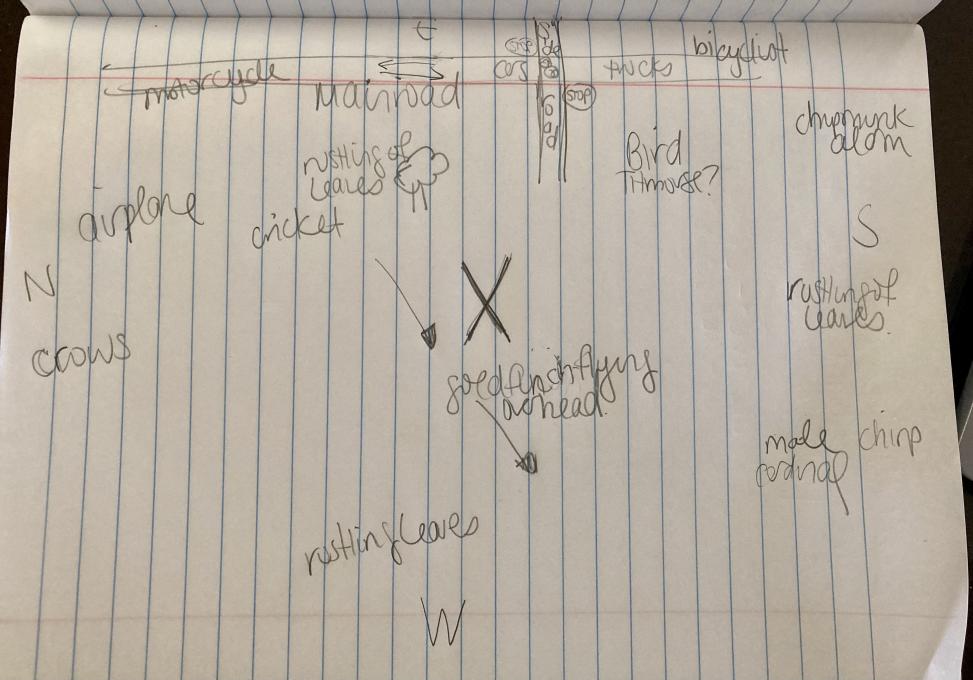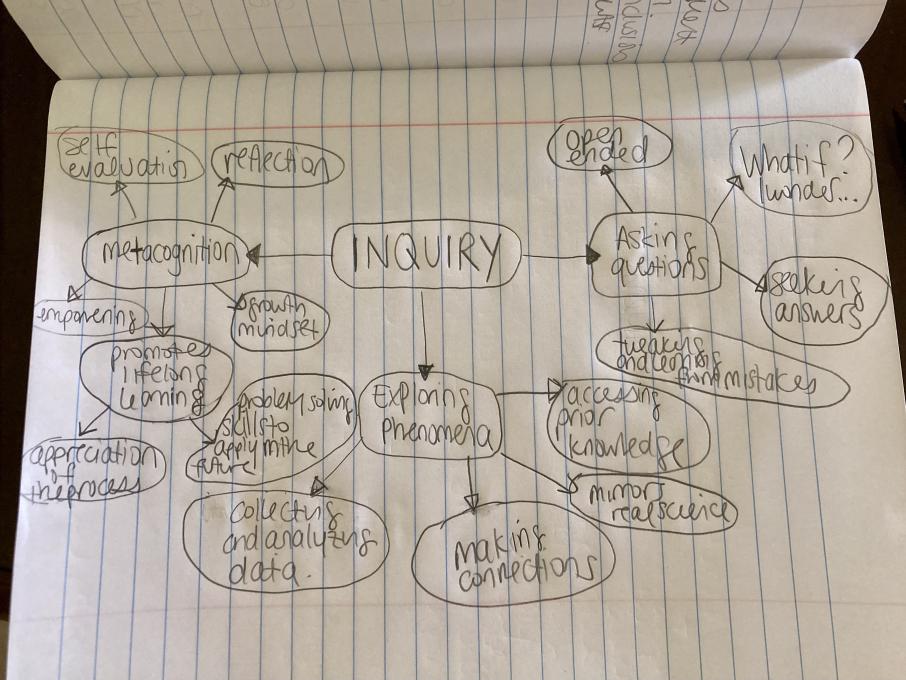Darlene
Forum Replies Created
Viewing 19 posts - 1 through 19 (of 19 total)
-
DarleneParticipantI like the idea of sharing out at different stages of the project. What a great learning tool for everyone and a good way for you to assess their progress.
-
DarleneParticipantI think for my population of students, it is important to have checkpoints throughout the process of the activity. I think it is important to address mistakes at these benchmarks and use it as a learning tool. This could be a good time to do peer review and also have a rubric for making corrections to fix the experiment. If students know they are going to improve their grade before they move on by completing corrections, I think this will motivate them in the future since they know it is okay to make mistakes and learn from them.
-
DarleneParticipantWhen leading and assessing inquiry-based activities, I struggle with pacing and students who rush through and those who need more time. This can cause issues when trying to do peer review, but I can usually group students who are in the same spot. Sometimes, I may take the time to hook up a stronger student with one who is struggling and this is more beneficial than me helping that student since they are hearing tips from a peer. I like the idea of having the students bring home their work and ask for two adult signatures. I think this will help by receiving better quality work throughout the process.
-
DarleneParticipantI really like the idea of you taking a part of lesson that needs work and revisiting it in a different way. It shows you are very in tune with your students abilities and where they need more reinforcement. Nice job!
-
DarleneParticipantWhat a fun project that can be done on the school grounds and at home! Great way to learn more about their local ecosystem.
-
DarleneParticipantI wanted to spend some more time working with the data in eBird since I really enjoyed learning about all of the resources it provides in the webinar. There is a lot of data and anyone can use it. I think this would be a great ongoing project throughout the school year so students can use their observations and data to study bird migrations. In the beginning, I think it would be cool to have the students design questions they want to explore and this can help them focus their research and investigation. I think this will help their observation skills and give them a better understanding of what is going on in their backyard.
-
DarleneParticipantI also try to model mistakes and that it is okay and how we learn!
-
DarleneParticipantI like the students to design KWL charts in their lab journals when introducing a new topic or watching a video. Then, we have a discussion about their "I wonder" columns as a way to guide our plan for learning about the topic. My students also present science news article presentations and the audience designs questions which provides the opportunity for discussion about science in general, science as an occupation, and inquiry. During lab, I also encourage students to extend beyond what we are doing by asking questions and designing side experiments as a way to guide their own learning through curiosity.
-
DarleneParticipantI participate in eBird to help improve my student and I's observation skills. Seeing is one thing, but using our ears, especially in summer after the leaf out is even more challenging, (but rewarding.) I recently went on a bird walk and the leader of the tour told us not to call out the bird we think we hear, but take our time and listen to everything. From there, we started to pinpoint certain birds, and even saw some. Later on while on the the tour, it was very rewarding to apply my new listening skills. The challenge for me is that I want to know what bird it is so bad! Instead of being hasty, I took my time and was patient. I also discussed what I was hearing with others and we were able to learn together. I hope I can provide a similar experience in the fall with my students. I think they will learn that it is okay to not know the answer right away and it can also be beneficial to work in a team to discuss observations and form conclusions.
-
DarleneParticipantI love that you are using the CoCoRaHS data for a school climate study. Youth are very interested in climate change and having this data will make them even more invested in climate action in their community. Great job!
-
DarleneParticipantI think that bringing them outside regularly and showing them images of the natural world in their local environment can help students take ownership of their learning. Starting the "I Wonder" board would be a great kick-0ff activity for the school year after bringing them outside. Asking them to bring a field journal or post it notes as they walk around the school grounds and their own homes is a great way to get their questions down on paper and promote discussion back in the classroom. From there, this can open doors to volunteer opportunities in their community as well as citizen science projects where they will learn even more about their surroundings through investigation and deeper thinking.
-
DarleneParticipantI agree! I have learned that my students really don't know what their local environment has to offer, so going out in their backyard is great way to promote wonderment and curiosity so they may begin to understand the habitat. I think that it also promotes environmental stewardship.
-
DarleneParticipantI like in your response how you were able to notice yourself become a better observer through observing frequencies of sounds. I hope this activity promotes deeper observation skills with my students like you noted in your experience!
-
DarleneParticipantThe most impactful thing about the sound map for me was how many different sounds I heard in the ten minutes I sat outside. To help students use their senses to learn more about the natural world, I would ask them to include hearing, sight, and smell, and possibly ask them to focus on each of these senses one by one and record their observations. I think a reflection and discussion follow up would be beneficial since we can learn a lot about the natural world from each other. I would like to do this as a common practice and in their reflection, focus on how their senses are developing each time they go out.

-
DarleneParticipantI think the most important practices will be for me to have a CS activity for each major theme in my curriculum with the overarching general theme of practicing science and observation skills. My students will put themselves in the shoes of a scientist by asking questions based off of their observations, collect and analyze data, and communicate their findings throughout the school year. I think this will be done best through CS projects like iNaturalist, GLOBE, and CoCoRahs for my Earth science students. This will be an excellent wait to monitor changes locally and seasonally, but also nationally and globally by comparing their data with other people throughout the country and world.
-
DarleneParticipantI would like to focus more on "attending to the unexpected". I feel it is important to embrace the surprises that occur when conducting citizen science activities. I think it also a good way to model the process of scientific inquiry through asking questions and promoting curiosity and understanding it's okay to not know everything. Also, one of the best things about this practice is using these opportunities to develop interconnections within the scientific world. I would like to do this more during local stream monitoring and then at A Day in the Life of the Hudson River.
-
DarleneParticipantI have used GLOBE Clouds with students during the meteorology unit. I am hoping to get involved with CoCoRahs next year once we get a stream gauge in a good spot on campus. I really enjoy eBird and Feeder Watch and propose it to my students as a way to work on observation skills. I think the best way to get involved in projects is to do those that apply to the content you are teaching to give students a practical application of the scientific study.
-
DarleneParticipantThis past year, I tried to get my students to take a deeper dive into the common uses of household minerals. I thought this would be a good way to understand the importance of the minerals we have in NY state. Students were able to use their reference table to investigate items around their house and guess which minerals make up that object based off of the minerals properties. They also had the opportunity to ask a retired state geologist about the minerals in NY state. They then used reputable internet sources after collecting data around their homes to help them confirm their findings and reported their information on a chart. I think this was a structured inquiry activity. To modify it, I think it would be cool to bring in samples of parts of household items in lab and undergo the properties of minerals lab with those items to help them understand why those minerals are used in their respective ways.
-
DarleneParticipantI think inquiry involves a learning process and mindset that starts with wonderment then follows a path of investigation through data collection and analysis to make connections to learn about the phenomenon in question.
 in reply to: Virtual Educator Retreat: Intro to Inquiry #824709
in reply to: Virtual Educator Retreat: Intro to Inquiry #824709
Viewing 19 posts - 1 through 19 (of 19 total)

